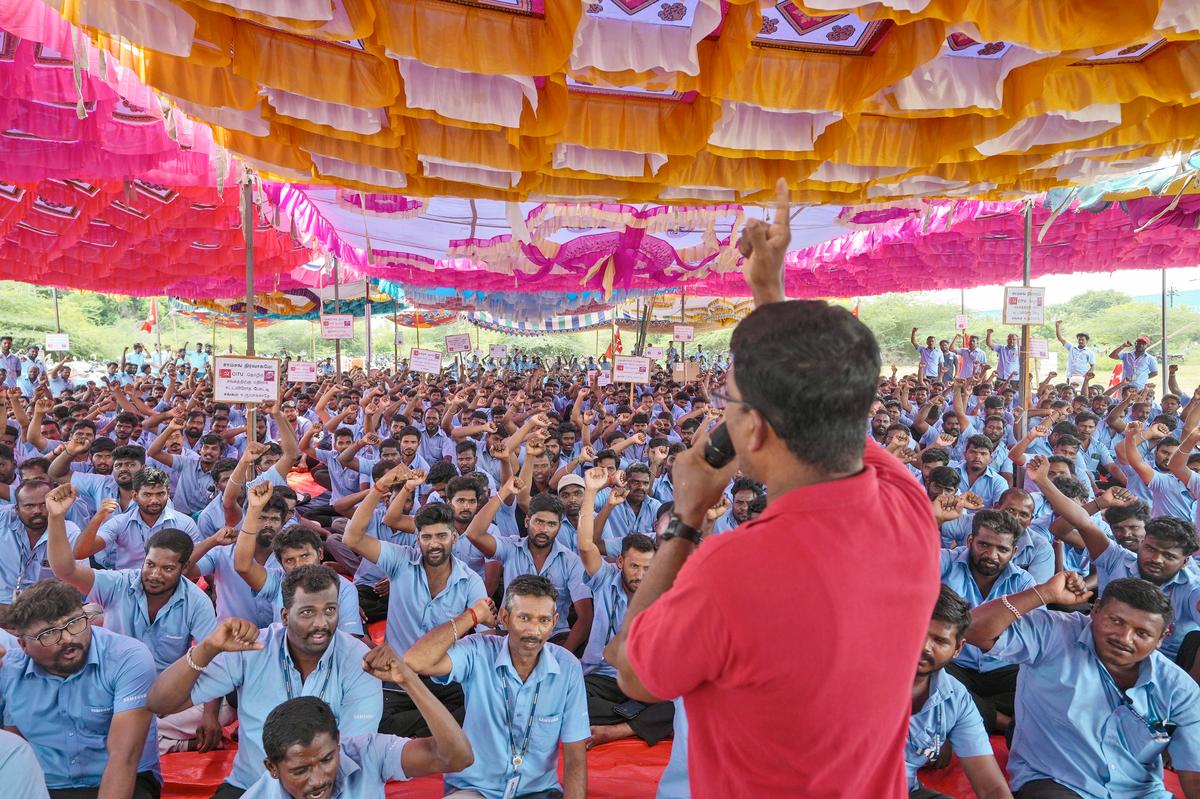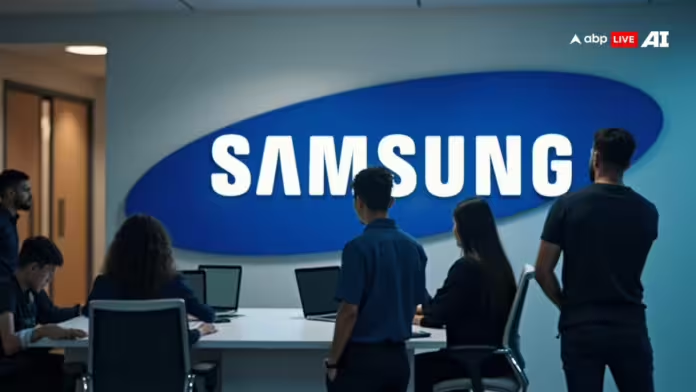Samsung, one of the world’s largest electronics manufacturers, recently announced a ₹5,000 special incentive for its striking workers in India. This decision comes after increasing unrest and dissatisfaction among workers over low wages, poor working conditions, and the company’s handling of labor grievances. While the incentive aims to quell the protests and get production back on track, many question whether this is a genuine solution to deeper, more systemic issues within Samsung’s labor policies in India.
The Strike: What Led to the Unrest?
Workers in several Samsung manufacturing plants in India have been on strike for weeks, demanding better wages, improved working conditions, and more attention to labor rights. The tipping point was a combination of low pay scales, strenuous work hours, and a lack of proper grievance redressal mechanisms.
Reports have surfaced that many workers are forced to work long shifts without adequate breaks and are often penalized for taking time off due to illness. Complaints of insufficient safety measures, especially during the pandemic, have further fueled the workers’ discontent.
As a result, labor unions representing these workers called for a strike, bringing production to a halt in some of Samsung’s key manufacturing hubs in India.
Samsung’s Offer: ₹5,000 Special Incentives
In response to the strike, Samsung has offered a ₹5,000 special incentive to all striking workers as a goodwill gesture. The company hopes this will encourage workers to return to their jobs and resume normal operations.
However, many workers and labor rights advocates argue that this incentive is merely a temporary fix and does little to address the root causes of the unrest. Workers are demanding not just financial incentives, but comprehensive improvements in working conditions, fair wages, and job security.
The company, on the other hand, claims that the incentive is a step toward showing appreciation for its workforce and ensuring that operations can resume as quickly as possible. But the question remains: Is ₹5,000 enough to compensate for the underlying grievances that have caused the strike in the first place?

The Bigger Picture: Labor Conditions in India’s Tech Industry
The issue of worker strikes, and poor labor conditions is not unique to Samsung. In fact, it highlights a growing concern across India’s tech manufacturing sector. As global demand for electronics surges, companies are racing to scale up production. However, this growth has often come at the expense of workers who are subjected to long hours, inadequate wages, and unsafe working environments.
The situation at Samsung’s plants echoes similar complaints from workers at other major tech firms operating in India. Despite India being a key manufacturing hub for these global giants, labor rights issues continue to plague the industry. The introduction of a ₹5,000 incentive might be seen as a band-aid solution for Samsung, but it doesn’t address the larger problem of labor exploitation that is widespread in the sector.
Is the Incentive Enough?
While the ₹5,000 incentive may temporarily pacify some workers, many are left wondering if it’s a genuine effort to improve their working conditions or just a way to avoid further production delays. Labor experts argue that the incentive is a short-term measure, and Samsung needs to implement long-term changes in its labor policies to ensure worker satisfaction and prevent future unrest.
The primary demands from workers remain:
- Better Wages: Workers argue that their current pay is far below industry standards, especially given the physical demands of the job.
- Improved Working Conditions: The labor force has voiced concerns about workplace safety, long shifts, and the lack of adequate health benefits.
- Job Security: With rumors of layoffs and contract labor replacing permanent positions, workers are demanding more job stability.
Addressing these issues would require a much more comprehensive strategy than a one-time payment of ₹5,000.
Public Reactions: Mixed Responses to Samsung’s Move
The announcement of the ₹5,000 special incentive has sparked mixed reactions from the public, labor unions, and industry experts. Some see it as a necessary step to ease tensions and get production lines moving again, while others criticize it as a token gesture that ignores the real problems.
On social media, many workers have expressed disappointment, labeling the incentive as “too little, too late.” Others have pointed out that the strike is not just about money but about dignity and respect in the workplace.
Labor unions have also voiced their concerns, stating that while they appreciate the incentive, it is not enough to meet the workers’ broader demands. They are calling for meaningful dialogue between Samsung management and workers to address the structural issues within the company.
What Does the Future Hold?
The ₹5,000 incentive may provide Samsung with a temporary reprieve, but without addressing the underlying issues, the company could face further disruptions in the future. Labor unrest has become a recurring theme in India’s tech sector, and companies will need to take proactive measures to ensure that workers feel valued and fairly compensated.
Samsung’s current approach seems focused on short-term damage control, but if the company wants to maintain its reputation and avoid further strikes, it will need to engage in more meaningful conversations with its workforce.
Additionally, the Indian government and labor regulators may need to step in to ensure that global corporations operating in India are held accountable for their labor practices. Is this the beginning of a more significant movement for labor reform in India’s tech industry? Only time will tell.
Conclusion: A Wake-Up Call for Corporate India?
Samsung’s decision to offer ₹5,000 as a special incentive to its striking workers has opened up a much-needed conversation about the treatment of workers in India’s tech manufacturing sector. While this move may appease workers for now, it raises deeper questions about corporate responsibility, worker rights, and the long-term sustainability of India’s tech-driven economy.
Will Samsung address the larger concerns raised by its workforce, or is this incentive just a way to delay the inevitable confrontation over labor rights? The coming weeks will be crucial in determining how this situation unfolds, and whether workers across the industry will see meaningful change in their working conditions.

